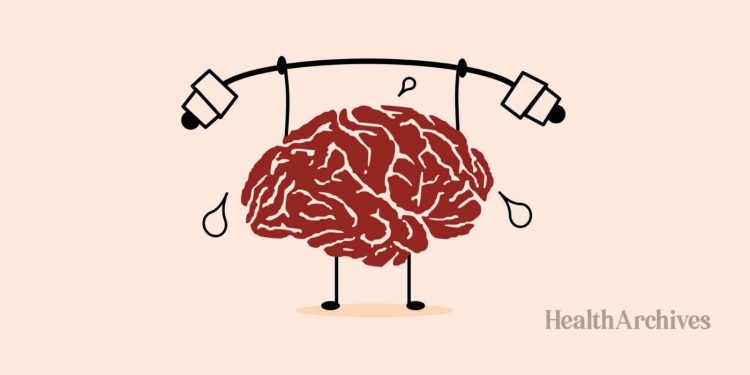The 10th of October is recognized as World Mental Health Day every year. The aim is to spread awareness regarding mental health issues. Lately, people are encouraged to talk about their psychological and mental health.
It is not a taboo if someone visits a psychologist or seeks help for their mental health. People are provided with an empathetic and safe environment where they can express and talk about their issues. Their opinion is given voice to make them take control of their lives to make them able to take affirmative action towards their future.
Though today there is no shame in expressing one’s feelings and emotions, there are a few key factors that need to practice from the early years. Certain health practices can be adopted within the family to avoid serious mental health issues in later life.
Family is the basic unit where the child grows and develops one’s personality—considering that the environment in the family is essential to foster not only physical but psychological health as well.
The relationship between parents and children serves as the nurturance of physical, social, and emotional development. The quality of parents and child interaction is of significant value, which is full of love and care.
Whether or not both parents are working, spending quality time with the child nurtures the development. The child grows up with a strong and confident personality. Here are a few practices which are pretty simple to adopt, but consistency in behavior is what counts.
Secure Relationship

The development of stable relationships among parents and children leads to satisfying relationships in the future. Parents are role models, and their guidance helps children to manage their emotions and plan solution-oriented approaches.
The social, linguistic, and emotional development of the child is given a booster with the leadership of parents. When the children have a strong bond with their parents, they trust them and do not feel judged when sharing their problems.
Initially, parents’ guide the children towards the possible solutions for the issue at hand. Eventually, the children learn and take on these principals to provide them with a direction to the resolution of the stressors in life.
Communication
It is quite common that parents often make rules and regulations at home, and the children have to follow them. They do not have the authority to ask what, why, how. Growing up, children have curiosities, and they want to know why they are being asked to perform a specific task.
And when parents do not feel the need or are not available to answer the queries of their child, they feel neglected and unloved. Later on, the children growing up in a home with a lack of attention, love, and care can develop anxieties and stress.
Communication develops strong parent-child relationships. Children feel secure while talking to parents about their institution, friends, teachers, and work. They share if something is bothering them, and parents listen carefully to all what the child has to say.
Parents then help the child to find solutions and think of an action plan to perform their tasks. In this way, the child learns that whenever they are in need and want to talk to someone, they can go to their parents. Rather than being stuck in a problem, the child can develop strategies based on the prior guidance of parents to solve the issue.
Moreover, it is essential to consider that each child needs proper attention, and they are of different ages and personalities. Parents should understand that the needs, cognitive skills, problems, rules, and regulations vary for a five-year-old and a 14-year-old. The parents cannot simply ask their five-year-old child to clean their room because their 14-year-old child does so.
Acknowledge your Love

Parents love their children, but usually, they do not tell that to them. It doesn’t matter if the child is in early, teen, or adult years. Parents should let their children know that they have unconditional love and unconditional positive regard for them. It strengthens the relationship, and the feeling of being loved makes the child trust one’s parents.
It is not difficult to do so, and parents can turn off any distractions like gadgets and TV. They can spend some quality time, which is meant solely for their children. When the children experience the display of love, affection, and care from parents, they believe themselves and take on the lead for their life.
Interactive Play

Interactive games and play can teach linguistic, social, communicational, and creative skills to children. Both outdoor and indoor games assist healthy relationships in parent and child.
Moreover, games help in the diversion of attention from work and any minor or significant stressors for parents and children. Thus apart from the development of social and emotional skills, the connection is built with respect, empathy, and teamwork.
Meal Time

Mostly, when the fathers come home, it is pretty late, and the children are either sleeping or are studying. Therefore, the family doesn’t sit together for even half an hour while having a meal. Meals times are like ice breakers, which serve as the platform for the start of a conversation.
When a particular topic comes under discussion, parents come up with their ideas based on their experience. At the same time, children provide their opinions stationed on the current and modern world. In this way, if a child in the family is not that interactive can also take part when the family encourages him/her to voice their opinion.
Indeed, often the things are not in the control of parents, and they may cause conflicts in the family. But, talking and discussing the problem and then mapping the solutions can lessen the conflicts.
Moreover, when parents spend quality time with children, it helps them learn entirely about their behaviors. Any problematic or undesired behavior thought parents could resolve pattern, or anxiety, which is disturbing the child at an early age.
Consider that the relationship between parents and children in the future will be a reflection of what it is today. Based on this, either the child will grow with both managed emotions and sound psychological, mental health, or a disoriented disturbed individual.
Also Read: Mental Health Issues Aftermath COVID-19












